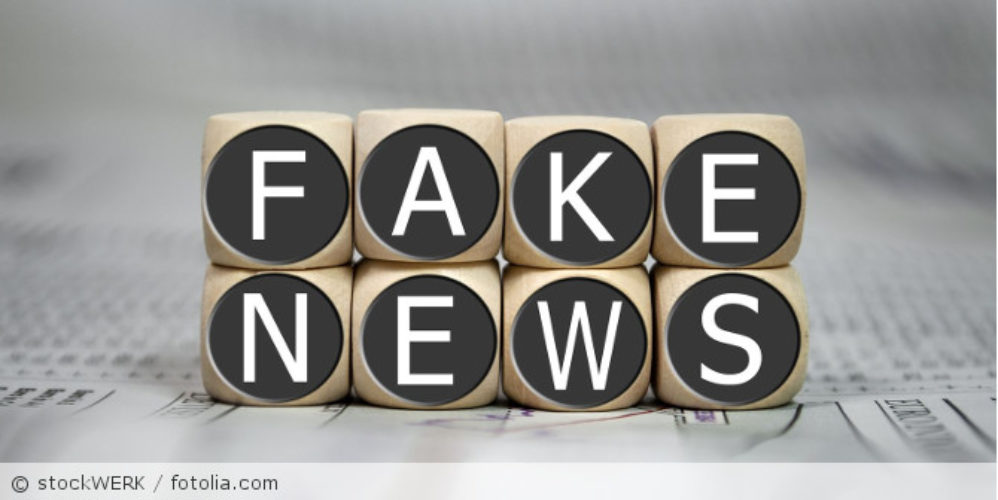If it weren’t for the hyphen, one might say – finally! While it remains to be hoped that social media posts stay with the truth, this article discusses so-called fake news – a phenomenon that currently plagues us and is alleged to have influenced the recent presidential elections in the USA.
The German word for post-truth, postfaktisch, has been voted word of the year 2016 – a questionable honor.
Legislative Initiative
German politicians have announced a legislative initiative aimed at exerting more pressure on online platform operators such as Facebook in order to force the company to take more rigorous steps against fake news and hate posts. Legislators plan to impose high fines and establish an obligation to publish a counterstatement, according to Thomas Oppermann (SPD). To that end, market-dominating platforms would be obliged to establish an agency in Germany where victims of fake news can file a report. If – after fact-checking – the respective post is not removed within 24 hours, fines of up to 500,000 € could be imposed; furthermore, the affected person would have the right to demand a correction with the same coverage.
This is problematic not only because it would imply that Facebook looks at every recipient of the post and then sends a correction to each of the recipients, which would entail more data processing, but also because a right to correction would put social media in the proximity of press law.
Press Law
If online platforms were subject to press law, this would mean, for instance, that Facebook would be liable for content in the same way as publishing houses are. The Federation of German Newspaper Publishers (BDZV) opposes the proposition strongly, stating that digital services such as Facebook and Twitter were not part of the media, but technology-driven platforms that should be treated and regulated in the manner of telecommunications companies, which are not held responsible for the content of their clients’ communication. With regard to the already existing legal principle of Liability for Dissemination, pursuant to which the operator of an internet forum is liable for the lawfulness of posted content, new laws would not be necessary.
Facebook to Employ External Fact-Checking Agency
Facebook has announced that it plans to take measures against fake news in the United States. Adam Mosseri (VP Product Management) stated that reporting hoaxes or fake news has become easier, as users can do so simply by clicking the upper right corner of a post. The company has also started to work with external, professional fact-checking specialists from the media sector who will review posts that have been reported as fake news by users and, where indicated, flag these as “disputed”. Stories that have been disputed may also appear lower in the newsfeed; the same may happen to posts that are not shared by users, as this, according to Facebook, may be a warning signal. This can be done by adjusting the algorithms that determine which articles will appear in a member’s newsfeed. According to Mosseri, Facebook is looking to prevent authors of fake news from making profit with their practice. Currently, the advertising shown on each page generates money for the authors every time sensational (fake) news is viewed and shared by users.
Fake News May Influence Parliamentary Elections
Facebook has been confronted with criticism that the U.S. presidential campaign may have been influenced by fake news disseminated on the social platform. With the upcoming elections to the German Bundestag this year, fears regarding the influencing power of fake news are growing. In the past, Facebook has not exactly excelled at responding to hate posts – the company was awarded the Verschlossene Auster[i] in 2016 for their slow reaction regarding hate posts, and the lack of transparency.
The German Minister of Justice, Heiko Maas, commented that fines needed to be discussed if other means were not successful so as to create an incentive for prompt action for Facebook; the minister went on to state that freedom of speech did have its limits: Insults, sedition, or libel should not take place on Facebook.
Freedom of Speech
While it is true that victims of hate speech or defamation may suffer greatly from such actions and therefore need to be given an effective means of defense, we must not forget that freedom of speech and freedom of the press are Basic Rights under the German Constitution, and that its Art. 5 states that “there shall be no censorship.” However, these rights can be limited in case of conflict with the Right to Personal Honor of each individual. While this may be a tough call at times even for the Constitutional Court, how can any agency – domestic or foreign – be entrusted with a task of such importance and delicacy? Should Facebook or any other entity watch over publications on social media platforms and decide for us what is true and what is false, what people should and should not read? We may be post-truth already, but hopefully, we will be spared “alternative facts”.
[i] The Verschlossene Auster (Closed Oyster) is a negative award by the Journalists’ Association Netzwerk Recherche e.V. for “withholding of information in politics and the economy.”





